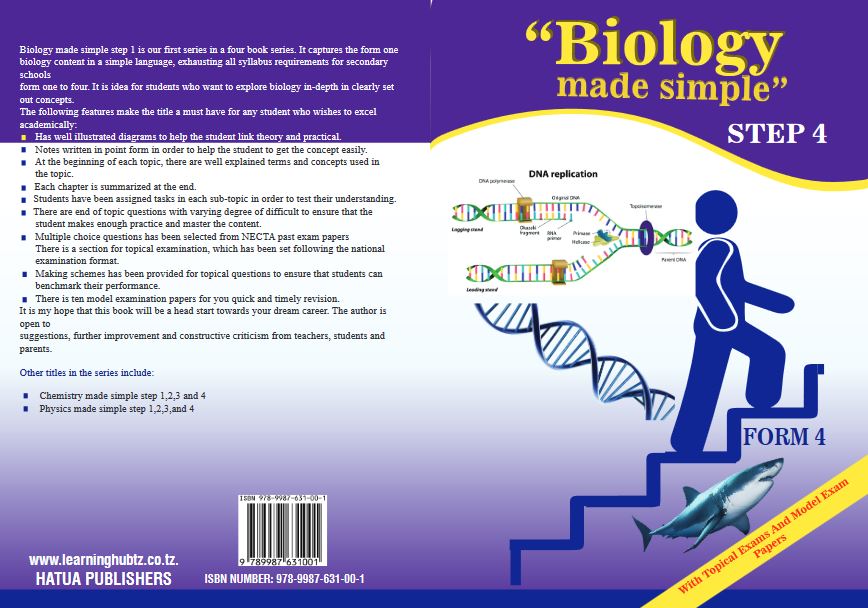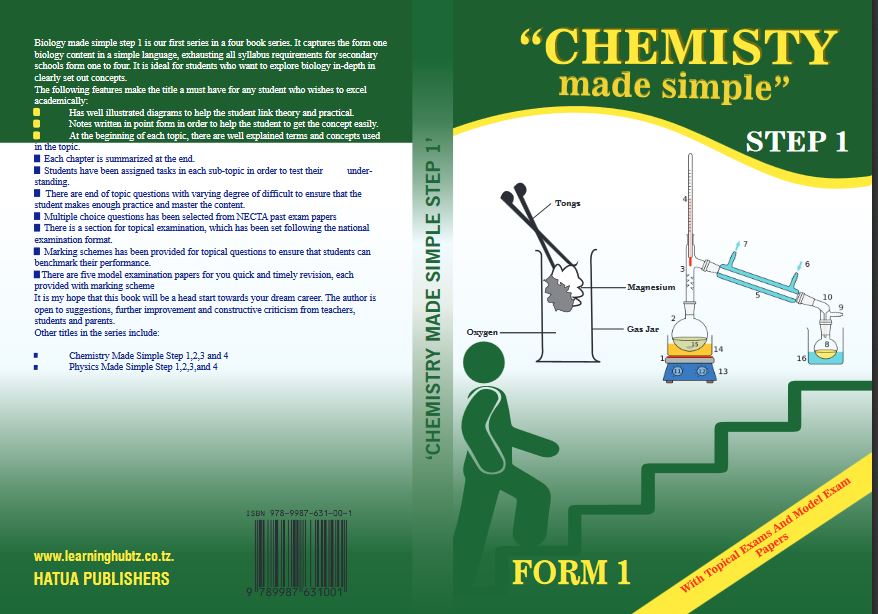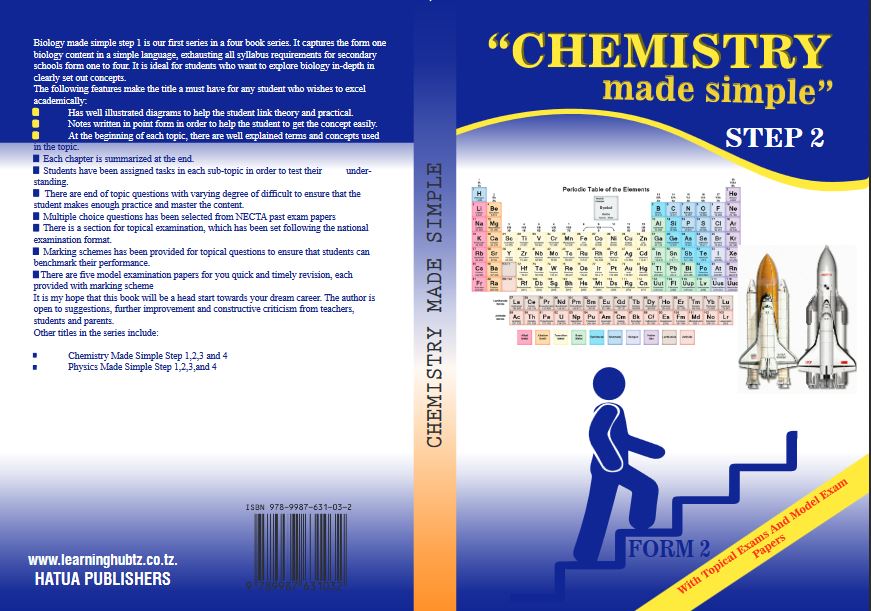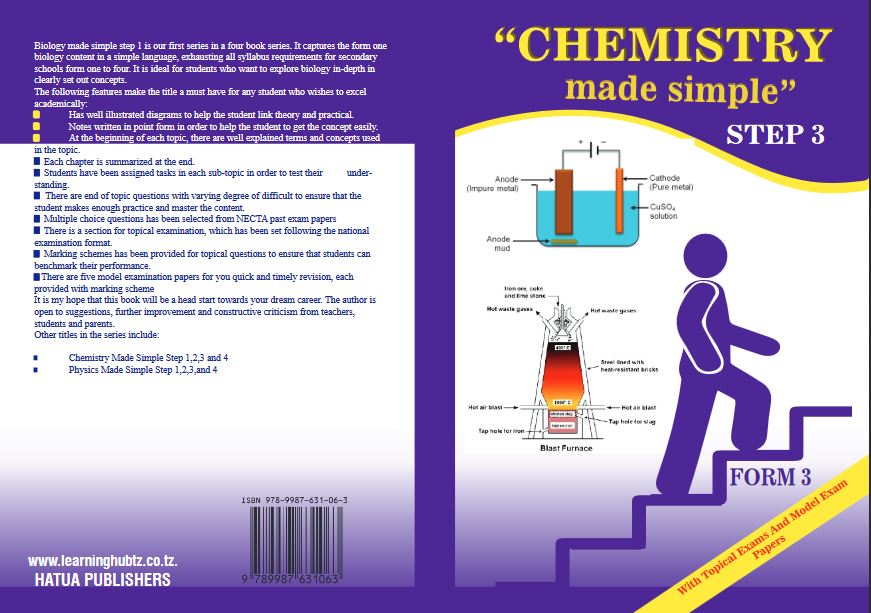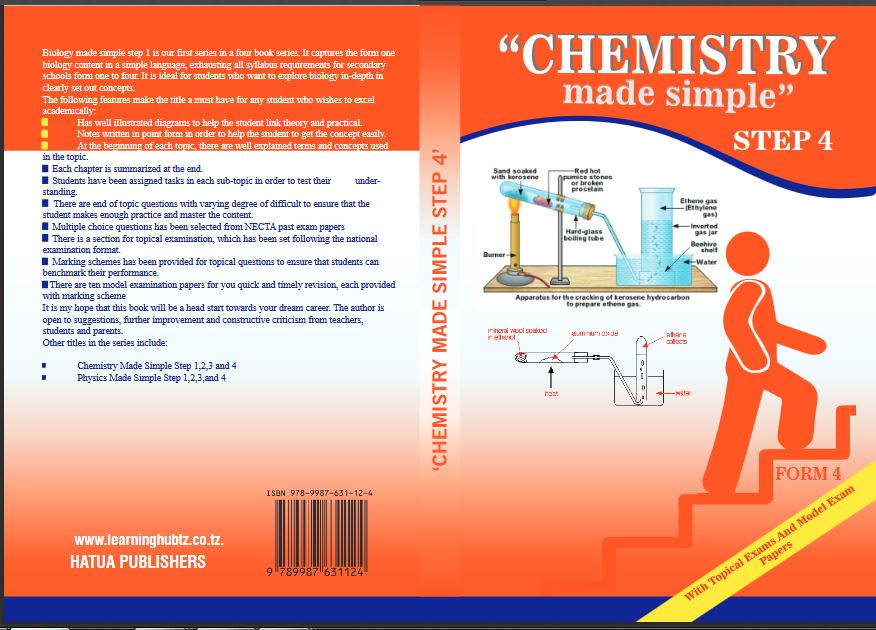CIVICS FORM TWO: TOPICAL QUESTIONS.
TOPIC: DEMOCRACY.
SECTION A:
MULTIPLE CHOICE QUESTIONS.
1. Choose the correct answer among the alternatives given.
Multipartism in Tanzania was adopted on;
1st July, 1992
2nd March, 1977
10th July, 1980
3rd April, 2000
(ii) The party which wins after election becomes
Official party
Opposition party
Multiparty
Ruling party
(iii) The following are principles of democracy except:
Equality
Cruelty
Rule of law
Bill of rights.
(iv) In a democratic state changes of leaders is made through.
Resignation
Revolution
General elections
Inheritance.
(v) A set of laws that govern the country is;
Laws of the country
Party constitution
National constitution
National anti –corruption policy.
(vi) The process of convincing voters to vote for a candidate in political rallies or meeting is called?
Referendum
Campaigning
Manifesto.
Civic education.
(vii) The following are the functions of National Electoral Commission except?
To register voters.
To prepare equipment/facilities for voting
Supervision the whole process of election.
To ensure there is peace during elections.
(viii) Presidential and parliamentary Democracy are forms of:
Representative Democracy
Liberal Democracy
Direct Democracy.
Participatory Democracy.
(ix) In a democratic state, the legitimacy of the government is obtained through;
Democratic campaigns
Democratic elections.
Independency of the parliament.
Democratic mass rallies.
(x) A voting area electing a representative to the National Assembly is called?
Municipal council
A constituency
Proportional representation
Universal suffrage.
SECTION B:
2. Match the items from list A with the correct response in List B by writing a letter of the correct answer.
| LIST A | LIST B |
|
|
SECTION C:
3. Write TRUE for a correct statement and FALSE for incorrect statement.
Check and balance system is most effective in parliamentary democracy_______
The term Universal suffrage means universal suffering___________
“Acceptance of defeat” in election means agreeing with criticism and results__________
Direct democracy can be applied on big population____
Multiparty democracy is very important because it gives a chance to citizens to do anything_________
Rule of law means leaders are exceptional before the law_____
The ruling party supervise the activities of government_______
In Tanzania, the Prime Minister is appointed by the parliament and approved by the president______
Party policies are stipulated in political parties constitution________
A Queen or a King is the head of state in Britain._________
SECTION D: SHORT ANSWERS.
4. Write short notes on the following terms.
Free and fair election
Voter
Political tolerance
Transparency
5. Provide five importance of democracy
6. Write down five differences between democratic government and non democratic government.
7. Write down importance of democratic election.
LEARNINGHUBTZ.CO.TZ Page
CIVICS FORM TWO: TOPICAL QUESTIONS.
TOPIC: PROMOTION OF LIFE SKILLS.
SECTION A:
MULTIPLE CHOICE QUESTIONS.
1. Choose the correct answer among the alternatives given.
(i) Problem solving techniques help to:
- Save human life
- Create human life
- Get possible solution
- Promote unit and solidarity
(ii) Among is not in the group of life skill:-
- Communication skills
- Negotiation skills
- Dispute skills
- Assertive skills
(iii) In life skills, the ability of a person to appreciate himself or herself is known as:-
- Self selves
- Assertiveness
- Self esteem
- Self awareness.
(iv) The step which involves crating several alternatives for a solution is called.
- Analysis of the problem
- Initiation mediation
- Generating possible solution
- Analysis of the solution.
(v) One among the following is not a quality of a good problem solver,
- Tolerant
- Unbiased
- Cruel and harsh
- Creative.
(vi) The ability of an individual to have thoughts and behavior which allow someone to stand up for his or her right is called.
- Assertiveness
- Biasness
- Diligent.
- Honesty.
(vii) Reading, writing, listening and speaking are best known as:-
- Communication modal.
- Elements of communication as process
- Basic communication skills.
- Modern forms of communication.
(viii) One of the following encourages and cultivates values, knowledge and ability to perceive things:
- Cooperative techniques
- Problem solving
- Life skills promotion.
- Guidance and counseling.
(ix) The ability of a person to analyze, evaluates, and describes the quality of something, and action or decision is referred to as:
- Creative thinking
- Decision making.
- Problem solving.
- Critical thinking.
(x) In order to make a healthy decision on any problem, the first important stage is to:
- Developing self confidence
- Choose the best alternative solution
- Seek guidance and counseling from peers.
- Identify and clearly understand the challenge.
SECTION B:
2. Match the items from list A with the correct response in List B by writing a letter of the correct answer.
| LIST A | LIST B |
| (i) Adolescent (ii) Unbiasness. (iii) Tolerant. (iv) Defining a problem (v) Self motivation. (vi) Sense of cooperation (vii) Mediation (viii) Early marriage (ix) Mediation. (x) Positive decision
|
|
SECTION C:
3. Write TRUE for a correct statement and FALSE for incorrect statement.
a) One characteristic of a good problem solver is conservation _______
b) Gathering information is the step of a solving a problem___________
c) Life skills are the ones which help people to interact and live well in the society__________
d) Solving problems among people in the society is a life skill____
e) Analyzing the solution helps to identify reliable answer_________
f) Through life skills, people overcome the problems which force them_____
g) An ability of a person to solve others problems are known as self-awareness skills._______
h) Life skills is the ability what someone has which help him/her to control or deal with the environment.______
i) Gathering information helps in obtaining the information of solving a p problems________
j) Leaders and teacher are not required to have problem solving technique._________
SECTION D: SHORT ANSWERS.
4. Explain briefly qualities of a good problem solver.
5. Identify five steps of solving problems.
6. Define the following terms as they are used in life skills.
(i) Self esteem skills
(ii) Personal skills
(iii) Self awareness skills
(iv) Social skills.
7. Identify importance of life skills.
8. Provide five differences between personal skills and social skills.
LEARNINGHUBTZ.CO.TZ Page 1
CIVICS FORM TWO: TOPICAL QUESTIONS.
TOPIC: GOVERNMENT OF TANZANIA.
SECTION A:
MULTIPLE CHOICE QUESTIONS.
1. Choose the correct answer among the alternatives given.
One of the following is not a ministry under the union Government of Tanzania.
Security and defense
Home affairs
Finance
Education and culture.
(ii) A type of dictatorship where a few persons form and control the government is called?
Aristocracy
Authoritarian
Totalitarian
Fascism.
(iii) The organ of the state which interprets law is;
Legislative
Executive
Parliament
Judiciary
(iv) The following are the responsibility of the president of Tanzania as prescribed by the constitution except.
Head of state
Head of the ruling political party
Head of government affairs.
Commander in chief of armed forces.
(v) External sources of government revenue which are non – payable include;
Domestic loan borrowing
Money from IMF
Loan from World Bank
Grants from donor countries.
(vi) According to the constitution of United Republic of Tanzania, the parliament consists of two parts which are:-
President and National Assembly
Cabinet and shadow cabinet
Union parliament and House of Representative of Zanzibar.
Members of parliament and the Ministers.
(vii) The branch of central government responsible for administration duties is called.
Judiciary.
Legislature
The executive.
The cabinet.
(viii) Which of the following is the organ which oversees the day – to – day activities and makes decision on matters concerning the village?
Village government
Village council
Village social council.
Village development committee.
(ix) Which of the following is not the source of national income in Tanzania?
Development levy.
Income tax.
Profits from parastatals.
License fees.
(x) The Chief Executive Officer of the city council is the:
Mayor
Deputy Mayor
City director
Regional commissioner.
SECTION B:
2. Match the items from list A with the correct response in List B by writing a letter of the correct answer.
| LIST A | LIST B |
|
|
SECTION C:
3. Write TRUE for a correct statement and FALSE for incorrect statement.
One of the functions of the president is to dismiss the speaker_______
In constitutional Monarchy the Prime Minister is appointed by the Queen___________
1961 Constitution declared Tanganyika and Zanzibar__________
The judges in the court of appeal are appointed by the Attorney general____
The head of the municipal council is Mayor_________
The introduction of multipartism in Tanzania in 1992 had aimed at expanding and strengthening democracy______
Parliament is also known as legislature because it checks the government work_______
The political party which struggled for the independence of Tanzania Mainland and succeeded was TANU______
Proposal for a new law is called by - law________
The Attorney general attends parliament by virtue of his office bur has no right to vote._________
SECTION D: SHORT ANSWER QUESTIONS:
4. Write down the functions of the president of the United Republic of Tanzania.
5. Write short notes about the following words.
The parliament
Constitution
Local government
Constitutional monarchy.
6. Identify the functions of the parliament
7. Identify sources of income of central government.
LEARNINGHUBTZ.CO.TZ Page
CIVICS FORM TWO: TOPICAL QUESTIONS.
TOPIC: PROMOTION OF LIFE SKILLS.
SECTION A:
MULTIPLE CHOICE QUESTIONS.
1. Choose the correct answer among the alternatives given.
Problem solving techniques help to:
Save human life
Create human life
Get possible solution
Promote unit and solidarity
(ii) Among is not in the group of life skill:-
Communication skills
Negotiation skills
Dispute skills
Assertive skills
(iii) In life skills, the ability of a person to appreciate himself or herself is known as:-
Self selves
Assertiveness
Self esteem
Self awareness.
(iv) The step which involves crating several alternatives for a solution is called.
Analysis of the problem
Initiation mediation
Generating possible solution
Analysis of the solution.
(v) One among the following is not a quality of a good problem solver,
Tolerant
Unbiased
Cruel and harsh
Creative.
(vi) The ability of an individual to have thoughts and behavior which allow someone to stand up for his or her right is called.
Assertiveness
Biasness
Diligent.
Honesty.
(vii) Reading, writing, listening and speaking are best known as:-
Communication modal.
Elements of communication as process
Basic communication skills.
Modern forms of communication.
(viii) One of the following encourages and cultivates values, knowledge and ability to perceive things:
Cooperative techniques
Problem solving
Life skills promotion.
Guidance and counseling.
(ix) The ability of a person to analyze, evaluates, and describes the quality of something, and action or decision is referred to as:
Creative thinking
Decision making.
Problem solving.
Critical thinking.
(x) In order to make a healthy decision on any problem, the first important stage is to:
Developing self confidence
Choose the best alternative solution
Seek guidance and counseling from peers.
Identify and clearly understand the challenge.
SECTION B:
2. Match the items from list A with the correct response in List B by writing a letter of the correct answer.
| LIST A | LIST B |
|
|
SECTION C:
3. Write TRUE for a correct statement and FALSE for incorrect statement.
One characteristic of a good problem solver is conservation _______
Gathering information is the step of a solving a problem___________
Life skills are the ones which help people to interact and live well in the society__________
Solving problems among people in the society is a life skill____
Analyzing the solution helps to identify reliable answer_________
Through life skills, people overcome the problems which force them_____
An ability of a person to solve others problems are known as self-awareness skills._______
Life skills is the ability what someone has which help him/her to control or deal with the environment.______
Gathering information helps in obtaining the information of solving a p problems________
Leaders and teacher are not required to have problem solving technique._________
SECTION D: SHORT ANSWERS.
4. Explain briefly qualities of a good problem solver.
5. Identify five steps of solving problems.
6. Define the following terms as they are used in life skills.
Self esteem skills
Personal skills
Self awareness skills
Social skills.
7. Identify importance of life skills.
8. Provide five differences between personal skills and social skills.
LEARNINGHUBTZ.CO.TZ Page
TOPICAL EXAMS
CIVICS FORM ONE TOPIC FOUR
CITIZENSHIP:
1. MULTIPLE CHOICES.
(i) A person who applies for Tanzanian citizen must
- Be a citizen of Tanzania
- Have Tanzania parent
- Renounce of former citizenship
- Many a foreigner
(ii) A person who loves his/her country is said to be
- Activist
- Citizens
- Partisan
- Patriotic
(iii) A person can become a citizen by
- Birth
- Nationalization
- Naturalization
- Registration
(iv) Which is not a requirement to apply for citizenship?
- Must be a rich person
- Must live in a country for five years
- He/she must be 21 year old above
- Must renounce his/her former citizenship
(v) A foreign woman can become a citizen by?
- Naturalization
- By marriage
- By registration
- By adoption.
(vi) Which is not a responsibility of a citizen?
- Communal responsibility
- Economic responsibility
- Social responsibility
- Political responsibilities.
(vii) Which is not a feature of a good citizen?
- Behaves in respectful manner
- Support family
- Accept responsibility of his/her actions
- Depends on others
(viii) Which is not a social responsibility of citizen?
- Do lawful productive work
- Protect his/her country
- Respect laws of right of fellow citizens
- Promote farness, equality or social justice
(ix) Which of the following is a special group?
- Elderly
- Refugees
- People with disabilities
- Breast feeding mothers.
(x) Which is not a responsibility towards special group?
- Provide financial and material support
- Show them respect and understanding
- Provide cancelling and socialization
- Give job vacancies to elderly.
2. Matching items.
| List A | List B |
|
|
3. (a) What are special groups?
(b) Mention four categories of special groups
4. (a) Enumerate responsibilities one has towards special groups
(b) Explain how one can become citizen by Naturalization
5. Discuss the responsibilities of a citizen.
Hub App
 For Call,Sms&WhatsApp: 255769929722 / 255754805256
For Call,Sms&WhatsApp: 255769929722 / 255754805256
 For Call,Sms&WhatsApp: 255769929722 / 255754805256
For Call,Sms&WhatsApp: 255769929722 / 255754805256


